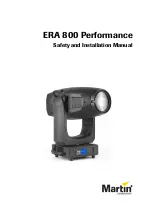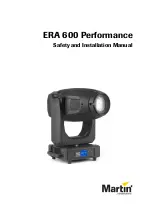
Installation
06-237518-001
4-13
July 2018
4-7.6
Positioning Cylinders
For ease of positioning the cylinder, the gauge port is marked by a label on the shoulder of the
cylinder.
Figure 4-11. Cylinder Valve Gauge Port
Follow this procedure to install the cylinders after they have been secured in their brackets:
1. Remove the transport cap from the cylinder. Store the cap in a convenient place for future
use.
2. Ensure that the gauge port is pointing to the right.
3. Remove the anti-recoil cap from the valve’s discharge outlet.
4. Leak test the outlet port of the cylinder valve by means of ammonium-free leak detection
liquid. If visible leakage occurs, replace the cylinder.
5. Connect the discharge hose to the discharge outlet on top of the cylinder valve. Do not
tighten the swivels on hose at this stage.
6. Leak test gauge port of the cylinder valve by means of ammonium free leak detection liquid
or spray, ensuring that there is no leakage.
7. Install the “quick connect” pilot hoses as indicated on the bank assembly drawing.
8. Install the Pilot Line Bleed Valve to the pilot line on the last cylinder.
9. Tighten the nuts on the clamping bolts, securing the cylinders. Use M24 & M20 fixed span-
ners and torque to 40 – 45 Nm.
Note:
Do not use the clamping bolt as a means of pressing the cylinder into the bracket.
10. Install a protecting nut on the free thread end, tightening slightly.
11. Tighten the pipe clamps for the distribution manifold. Use an M20 fixed spanner, torque:
20 – 25 Nm. A counter hold is required.
WARNING
Cylinders not connected to the manifold must have anti-recoil safety caps on the
discharge outlet.
GAUGE PORT
Gauge Port
Summary of Contents for 400 Series
Page 2: ...Table i Revision History Revision Change Description AA Initial Release ...
Page 16: ...July 2018 xiv 06 237518 001 THIS PAGE INTENTIONALLY LEFT BLANK ...
Page 157: ...06 237518 001 A 1 July 2018 APPENDIX A SAFETY DATA SHEETS ...
Page 188: ...July 2018 A 2 06 237518 001 THIS PAGE INTENTIONALLY LEFT BLANK ...
Page 189: ......
















































